“The garden is the smallest parcel of the world, and the, it is the totality of the world” wrote Michel Foucault in 1967 in “Espace Autres” (Of Other Spaces) …
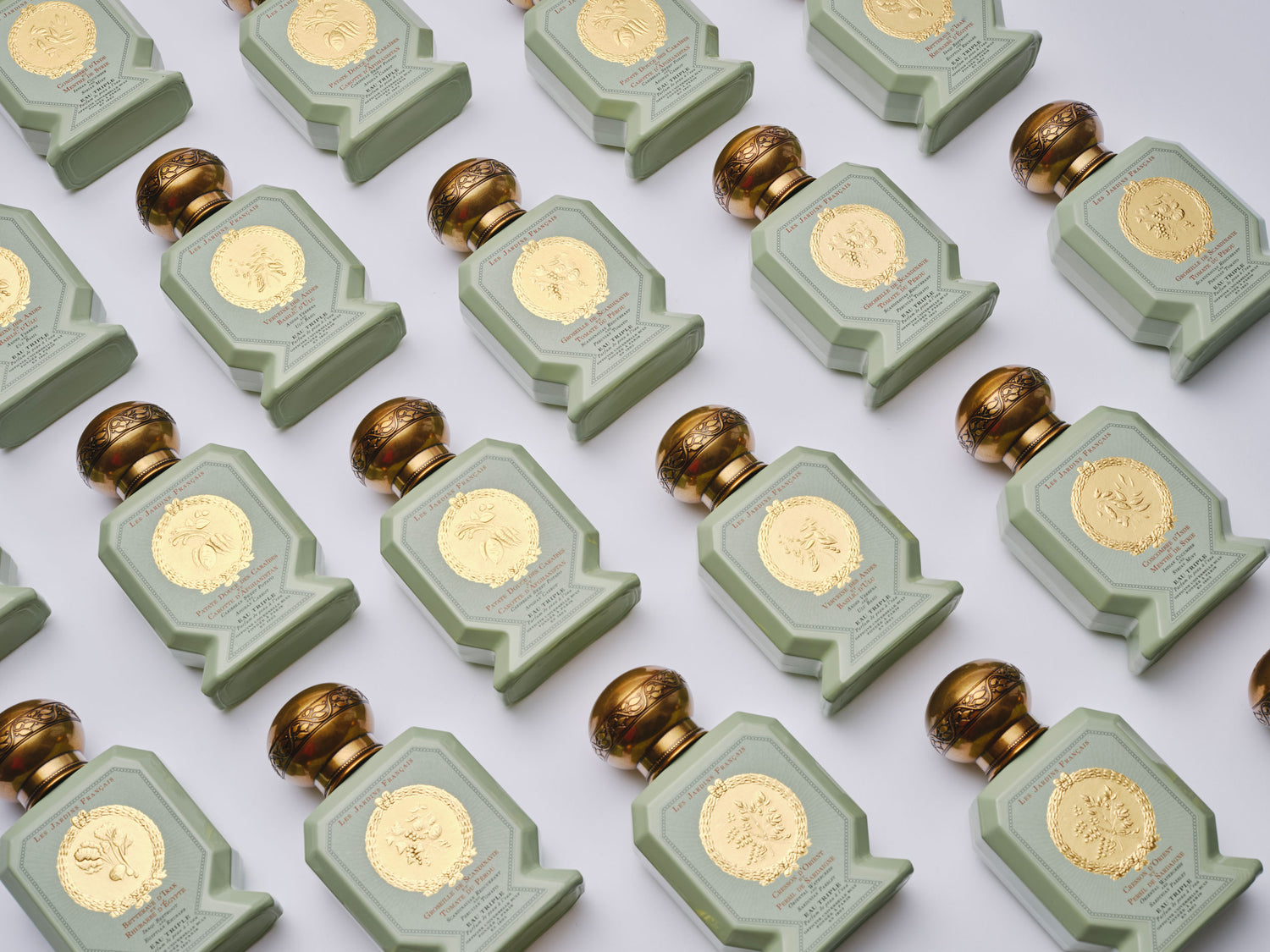
“The garden is the smallest parcel of the world, and the, itis the totality of the world” wrote Michel Foucault in 1967 in “Espace Autres” (Of OtherSpaces) … The story of “The French Gardens of the Officine Universelle Buly” perfume collection stems from a large cardboard case found by chance. Hidden among the scattered treasures of an antique dealer, this case indeed seemed to contain an entire world: 550 small oval boxes dating from the 18th century, each containing old seeds and seedlings and a beautiful jade green notebook. Behind these Latin names of plants and flowers, handwritten in pen by a passionate botanist, was revealed an extraordinary imaginary garden composed of plants still ready to bloom two hundred years. after their harvest, thus bringing back to life scents that had disappeared and reviving an entire French art of living.
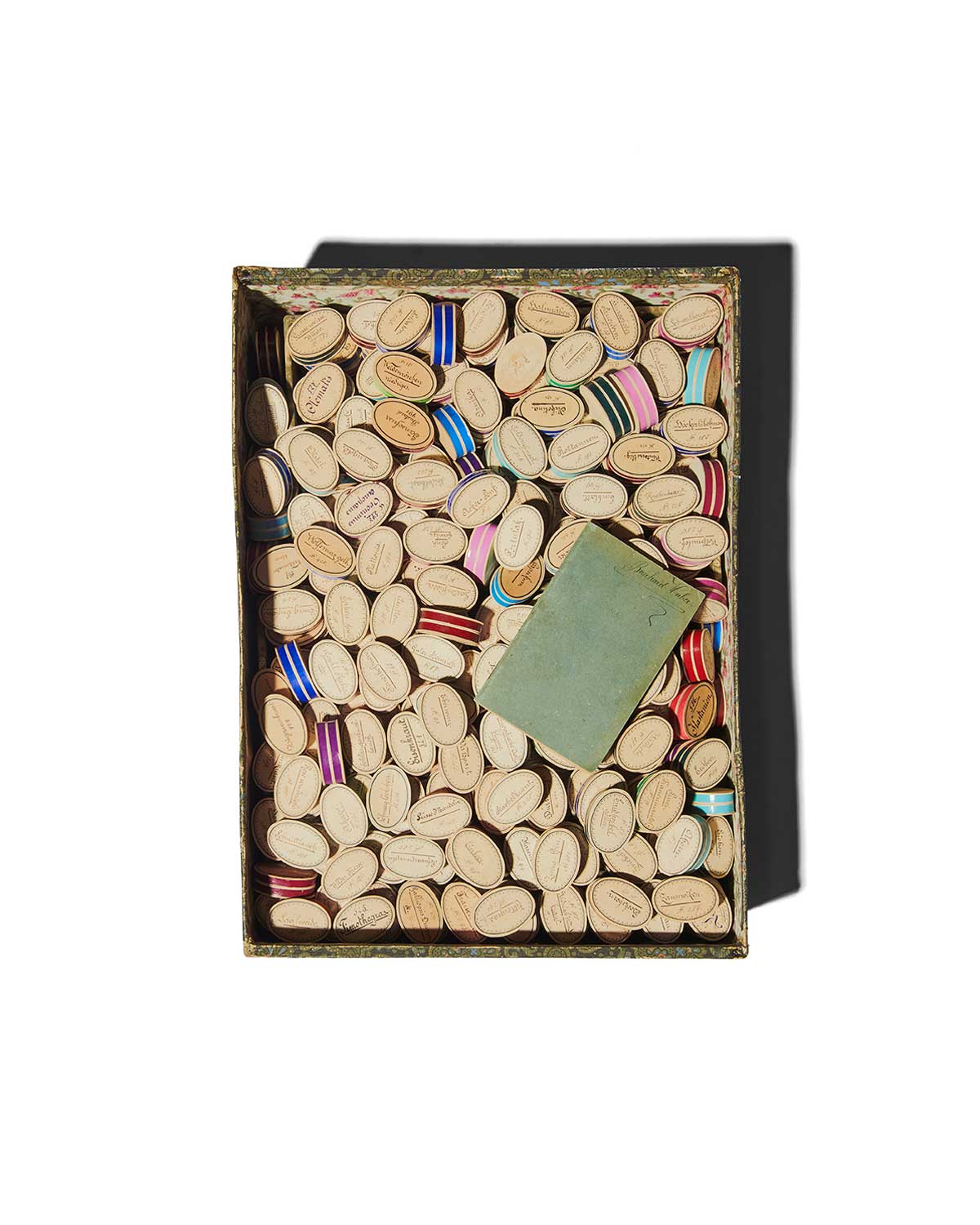
... about the universe that surrounds us, and this collection offers variations of “garden scents” from the vegetable garden, the orchard or the wild undergrowth, including familiar vegetables, aromatic plants or unusual fruits from all over the world that have been appreciated for their virtues for thousands of years. Their scents have an immense evocative power, as close as possible to memories and reality, without clinging to imagination but to pleasure, the pleasure of plunging in the ‘lush’, in the vegetable garden, in city or country gardens, old or ordinary, near or far.
The perfume vials of these Eaux Triples are adorned in soft green, like the notebook of the anonymous botanist who collected the ancient seeds, decorated with fine gold to match the treasures they conceal: Iraqi Beetroot and Egyptian Rhubarb, Indian Cucumber and Syrian Mint, Oriental Watercress and Sardinian Parsley, Scandinavian Redcurrant and Peruvian Tomato, Caribbean Sweet Potato and Afghan Carrot, and lastly, Andes Verbena and Ulu Basil. This range of fruity, fresh, woody, herbaceous and spicy scents unfolds like a mystical notion of a lost paradise, echoing the cosmic link described by Michel Tournier in Le Vent Paraclet in 1977: “It is the gardener’s vocation to dig the earth and to question the sky”
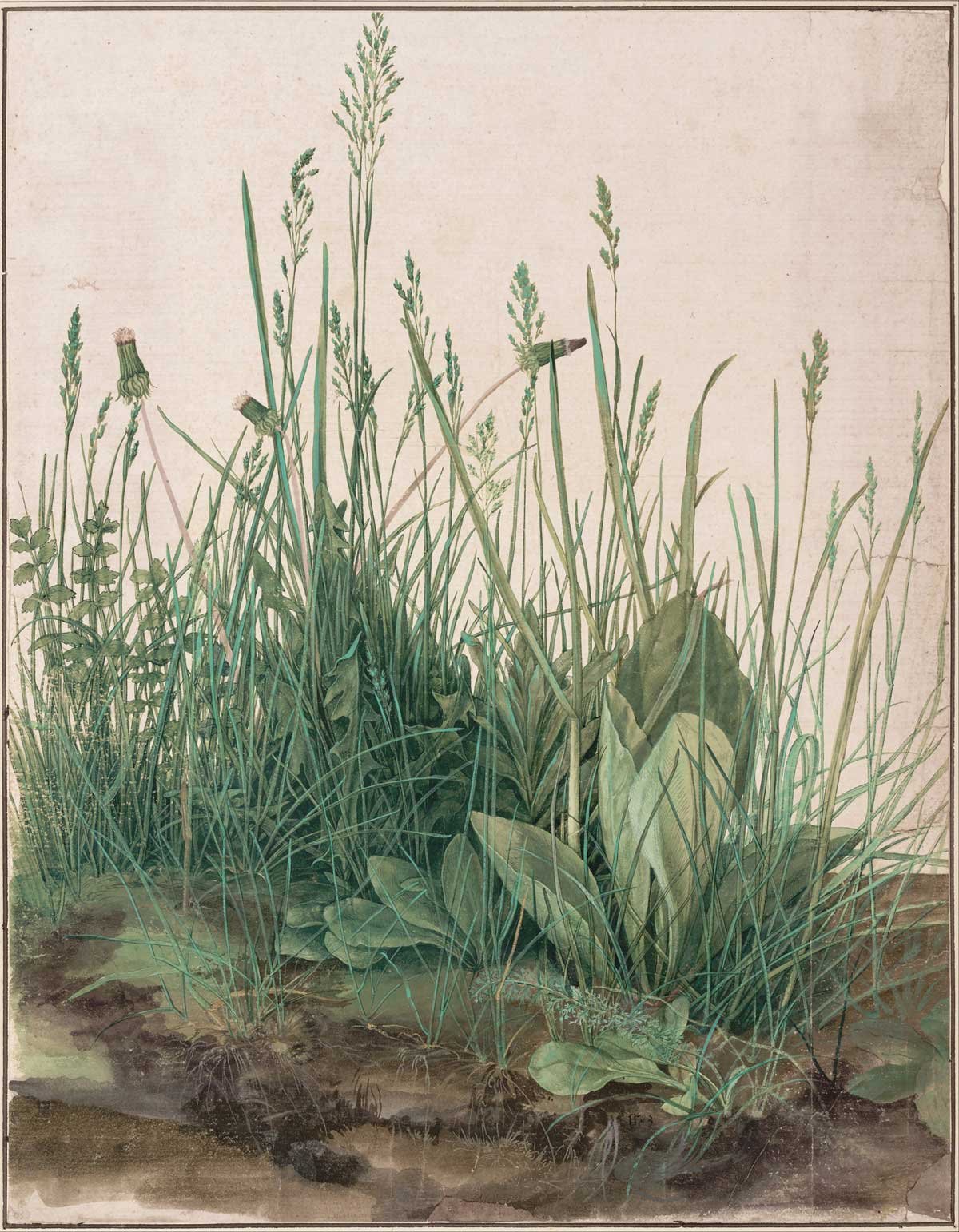
apothecaries and gardeners for millennia, but their irruption into the world of perfume really began with the 18th-century use of powerful aromatic plants such as mint and verbena - very citrus like - in eaux de Cologne. Vegetables, for their part, were rarely used, but each time they were during the last half of the 20th century, they were huge successes. Finally completely off the beaten track, vegetables have been appearing with a bang as top notes in singular fragrances in recent years, long after the reign of woody, floral and fruity, making these scents immediately fascinating, paradoxically ultra-modern and, at the same time, rooted in memory.
Linking scent and the idea of flavor, the "Les Jardins Français de l'Officine Universelle Buly" collection creates emotion by playing on two senses - smell and taste - through the idea of an extraordinary gourmet treat. The herbs, fruits and vegetables of the kitchen garden take the brain down the sensual paths of pleasure. What is the image that emerges in the subconscious? It's often linked to childhood and memories, like a journey back in time, as Marcel Proust perfectly described with his famous Madeleine accompanied by an infusion of linden in Du côté de chez Swann, in 1913:
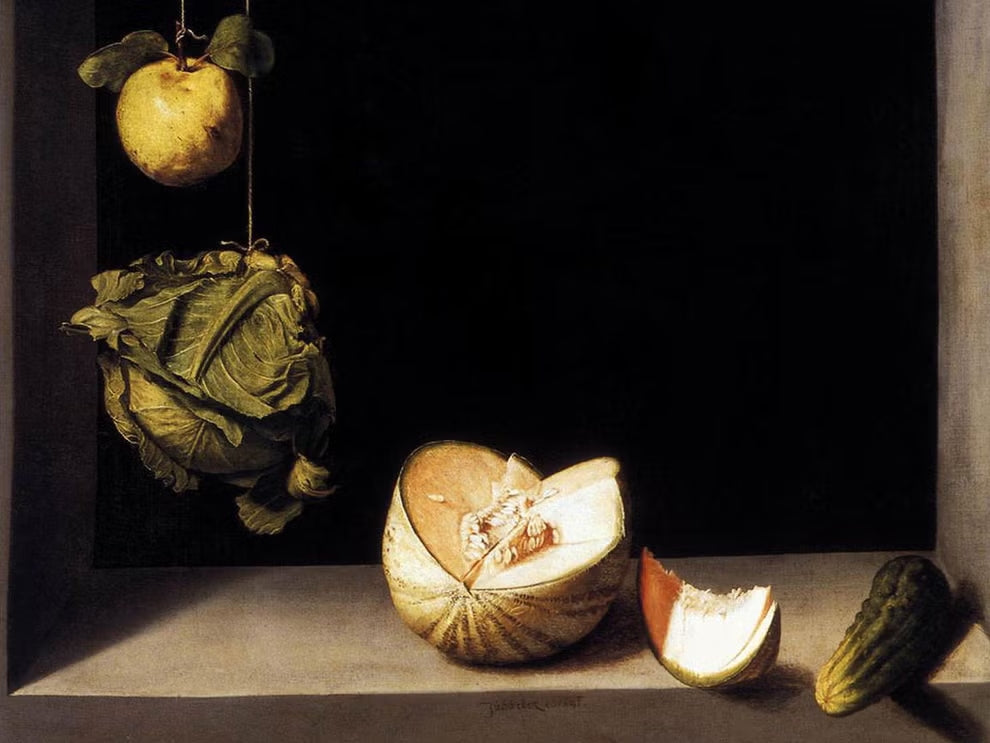
Twelve scents, twelve stories Out of the ordinary for these aromatic herbs, vegetables and garden fruits; behind their well-known names lie extraordinary paths. With this collection of Eaux Triples, L'Officine Universelle Buly reminds us that botanical species also travel and metamorphose, from country to country, continent to continent, over the centuries, to arrive near us, as familiar as if they'd always been part of our everyday tableau." From that day on, Claudine, I knew what life was worth!... A garden where you can pick everything, eat everything, leave everything and take it all back... "Colette, La Retraite sentimentale, 1900
The relationship between memory and smell is powerful and irrepressible. A happy memory will become etched in the mind without us even realizing it, anchored to the five senses - a song playing on the radio, the smell of clean laundry, the flowery perfume of a loving mother, the scent of waxed wood in a library, a herbaceous vegetable garden in which you pick gooseberries one by one in the sun... These impressions from the past will trigger a lifelong burst of pleasure in the present each time they are smelled again. In the same way, a new perfume can be chosen as a promise, the "soundtrack" of new pleasures to be experienced. What determines sensitivity to a fragrance? It's an enigma even for the neurosciences, with infinite variations depending on the individual, geography and genetics, according to the three hundred olfactory receptors each dedicated to particular scents. For example, the violet receptor is the same one used for the tomato and red fruit molecule, blending the scents of flowers and fruit. A fragrance such as Scandinavian Gooseberry and Peruvian Tomato will thus play on the known and the unknown, ultimately creating an impression of sensuality but also of innocence rediscovered.
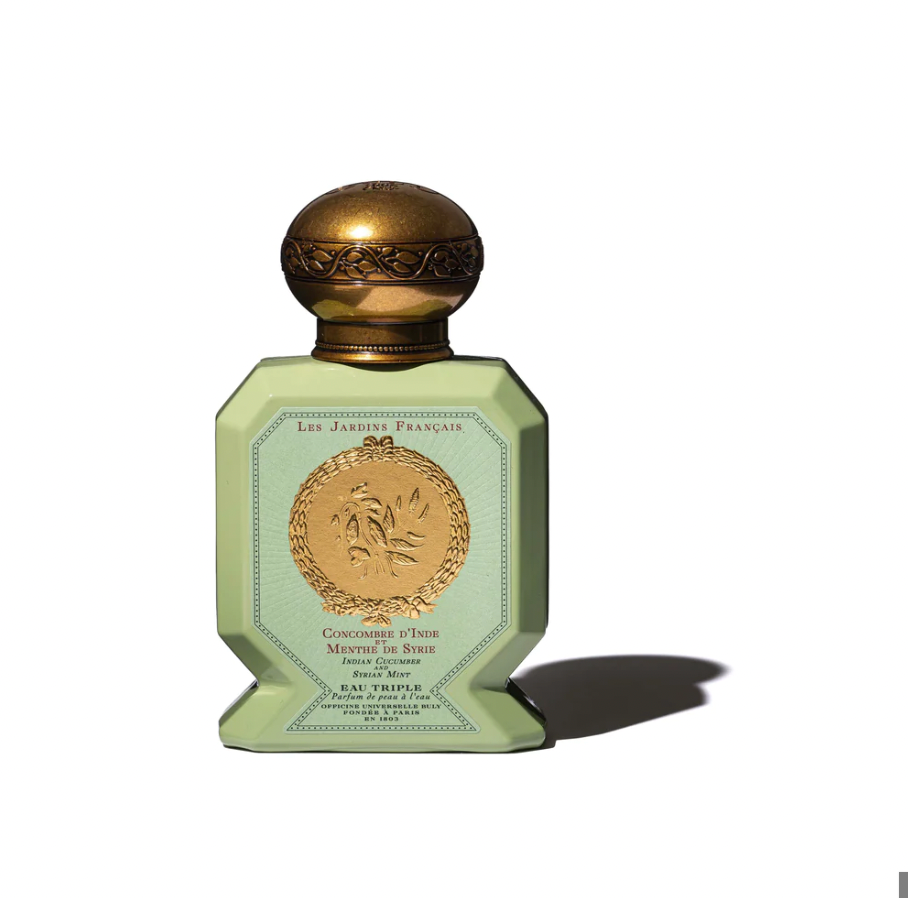
Freshness reaches its peak with the combination of Indian cucumber and Syrian mint. Here, L'Officine combines a great aromatic classic - mint - with an outsider in the world of perfumery: the cucumber. A long way from our French summer plates, the cucumber originated in the Himalayan mountains, where it was consumed in the valleys under the Sanskrit name of Soukasa, then found itself cultivated on the banks of the Nile, where it became a choice offering to the gods. In the 18th century, its cosmetic virtues made it the ideal ally for rose complexions. In recent years, its fresh, vegetal scent has opened the doors of perfumery to give a boost to summer fragrances. Almost its perfect opposite, mint, the queen of aromatic plants, comes in many varieties and countless hybrids. In Greek mythology, the young Menthe is transformed into a plant with a bewitching aroma - almost an aphrodisiac - to escape Hades' jealous wife, Persephone. Celebrated as a medicinal plant by all cultures, it became an essential component of eaux de Cologne, notably the one prized by Empress Eugenie in the 19th century. Today, its powerful, aromatic scent evokes the fresh waters of modern perfumery, as well as the Mediterranean summer for the taste buds, like so many sunny moments.
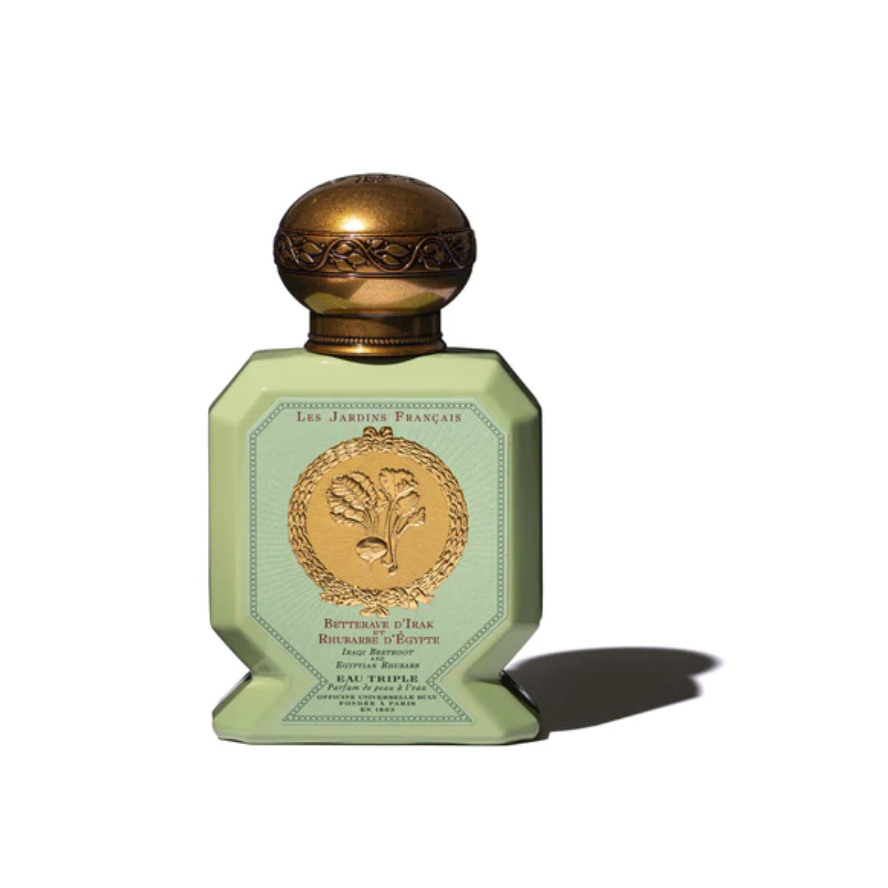
With Beetroot from Iraq and Rhubarb from Egypt, L'Officine combines two exceptional "fruit-vegetables" (according to botanists, both are classified as vegetables): one sweet, the other slightly acidic, the former round and velvety in deep purple-red, the latter with its powerful purple-green stems and fibers. Of mysterious origin, wild beet (Beta Maritima) undoubtedly began to grow in the Near East, Asia and along the shores of the Mediterranean, before being prized by Germanic populations (the sanguine Beta Vulgaris), then finding its place on gourmet tables in Europe as early as the reign of Louis XIV, and finally undergoing various mutations (Beta Imperialis) since the end of the 18th century to extract the gold of the age: sugar. Rhubarb, literally "Barbary root", has been renowned for its medicinal virtues in Asia and Greece for two millennia. Rhubarb followed the Silk Road with Marco Polo, who described it in his 13th-century travel diaries:
"For me, I always believed that this rhubarb was some holy relic he had brought from Jerusalem. He boldly gave this water to all sorts of sick people to drink. It was impossible for them not to be greatly moved by such a bitter potion, and the change it made in them was reputed to be miraculous". It was in 19th-century England that rhubarb began to be enjoyed, in compote, crumble or pie, as a "fruit" with an extremely distinctive tangy-sweet taste.
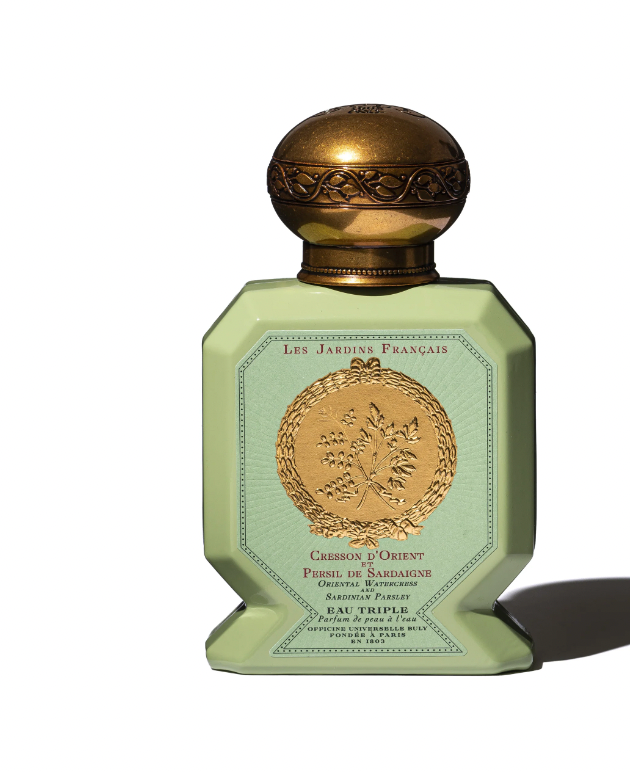
Green is the scent of oriental watercress and Sardinian parsley, an aquatic green first and foremost with watercress, to which the Persians - among others - attributed almost supernatural virtues, restoring the body's health and strength. The ancient Greeks considered it both an aphrodisiac and an antidote to alcohol. Its slightly bitter, green and pungent taste makes it an atypical alter ego of the more common salads, floating on the water but smoldering in the fire. Present on all five continents and prized for millennia, parsley, another aromatic herb that has gone from apothecary to gastronomy, is in the ultra-green range. A herb with properties as diverse as the cultures that have celebrated it, parsley, which is very slow to emerge from the ground before unfolding its benefits, is linked in ancient writings to divinities and mythological heroes from Hercules to Persephone, via Achilles. L'Officine has combined the vegetal strength of these two plants with the scents of geranium and vetiver for a woody accord.
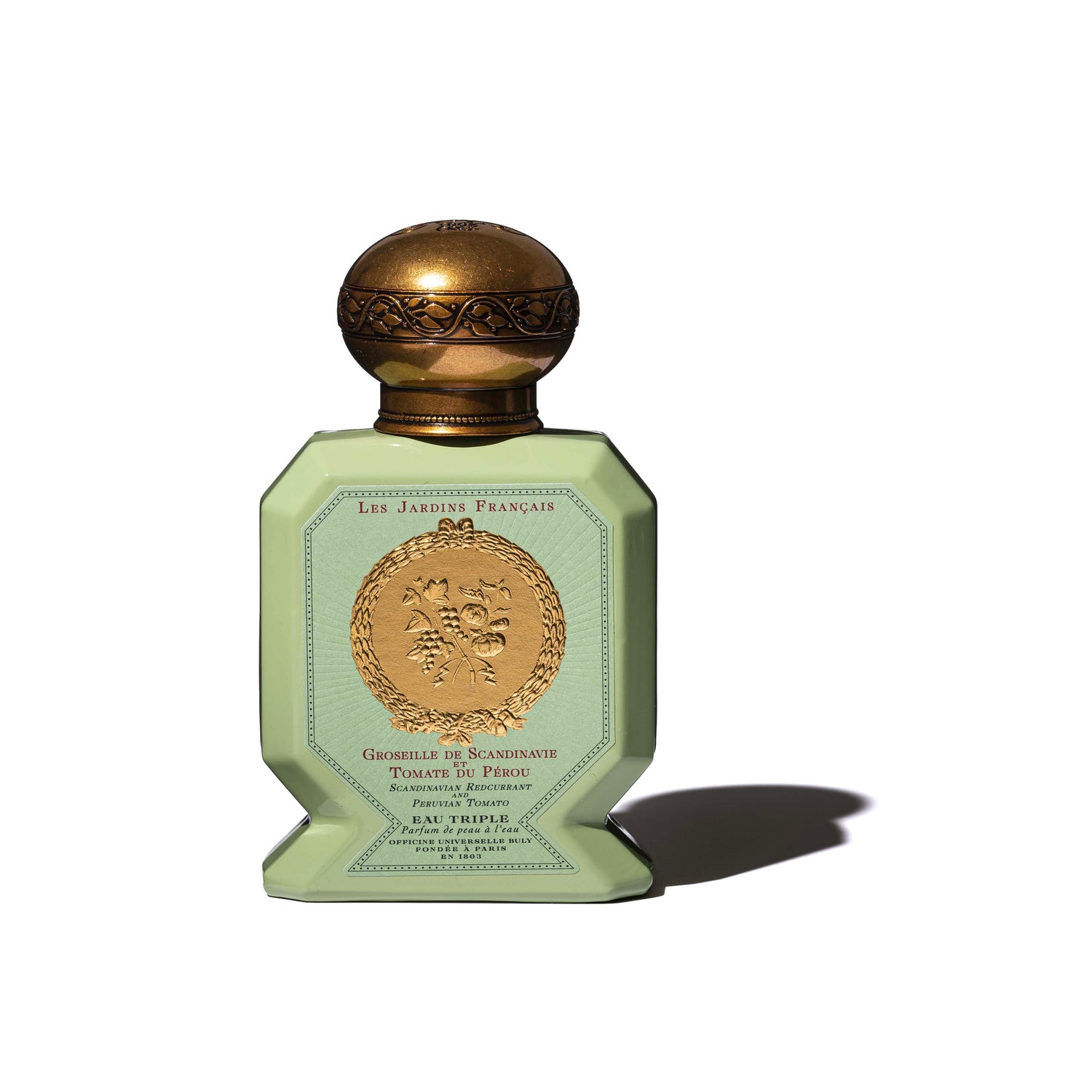
The alliance of two scarlet stars, Scandinavian redcurrant and Peruvian tomato, is as green as it is fruity. The tomato, or golden apple ("pomodora"), disguises its fruity soul under the guise of a vegetable. Cultivated by the Incas and given the name "tomato", this small, golden-yellow fruit crossed the ocean to Italy in the 16th century, where it was long considered an ornamental plant before taking on its beautiful red color, its modern size and being appreciated on European plates. Its leaf has a powerful herbaceous scent, green to the point of dizziness, which blends here with the fruity, tangy roundness of the redcurrant, which originated in northern Europe and has been a favorite of French gardeners since the Middle Ages. Sweet and tangy, its delicacy is matched only by its vivacity, a sparkle that illuminates this Eau Triple.
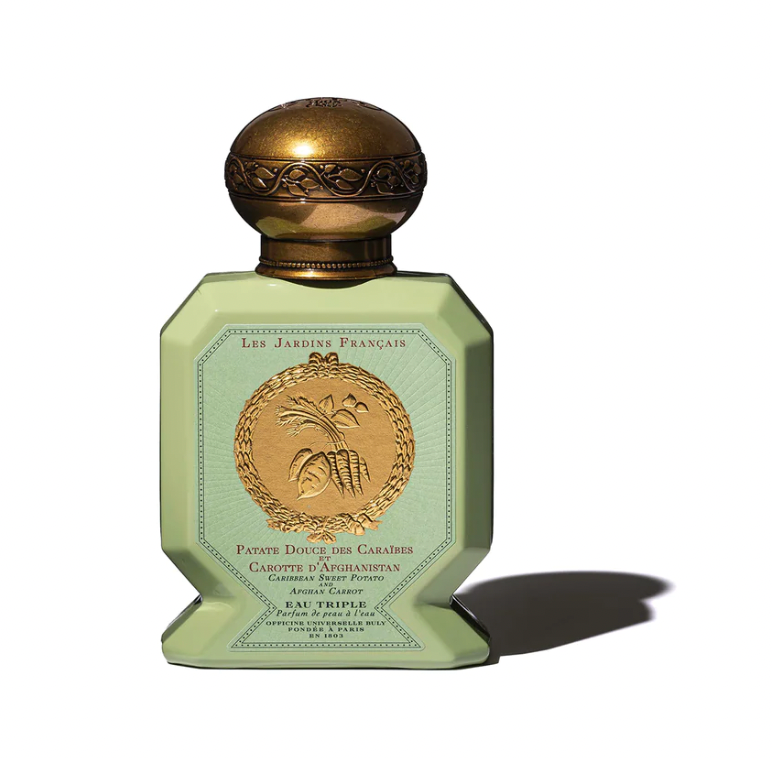
Excessively orange, these two "sweet" vegetables, Sweet Potato from the Caribbean and Carrot from Afghanistan, reveal in this new scent from L'Officine the gentle flamboyance of a sunset, sprinkled with spices and refreshed with vetiver. Native to tropical South America, the sweet potato ("batata") has traveled from Peru to New Zealand, Hawaii, the Marquesas, the Philippines, China and the West Indies. It was here, in Santo Domingo, that Christopher Columbus discovered it in 1492, then brought it back to Europe. Mineral with a honey-like flavour, it goes wonderfully well with carrots, also an orange "treasure" hidden underground. Traces of carrot seeds have been found by archaeologists in prehistoric dwellings in Central Asia. Originally purple and yellow, the carrot probably became orange thanks to a "creation" by botanists in Holland in the 16th century.carrot's fragrance comes from its seeds, a fresh, powdery, woody scent that noses compare to that of one of the queens of perfumery flowers: the iris.
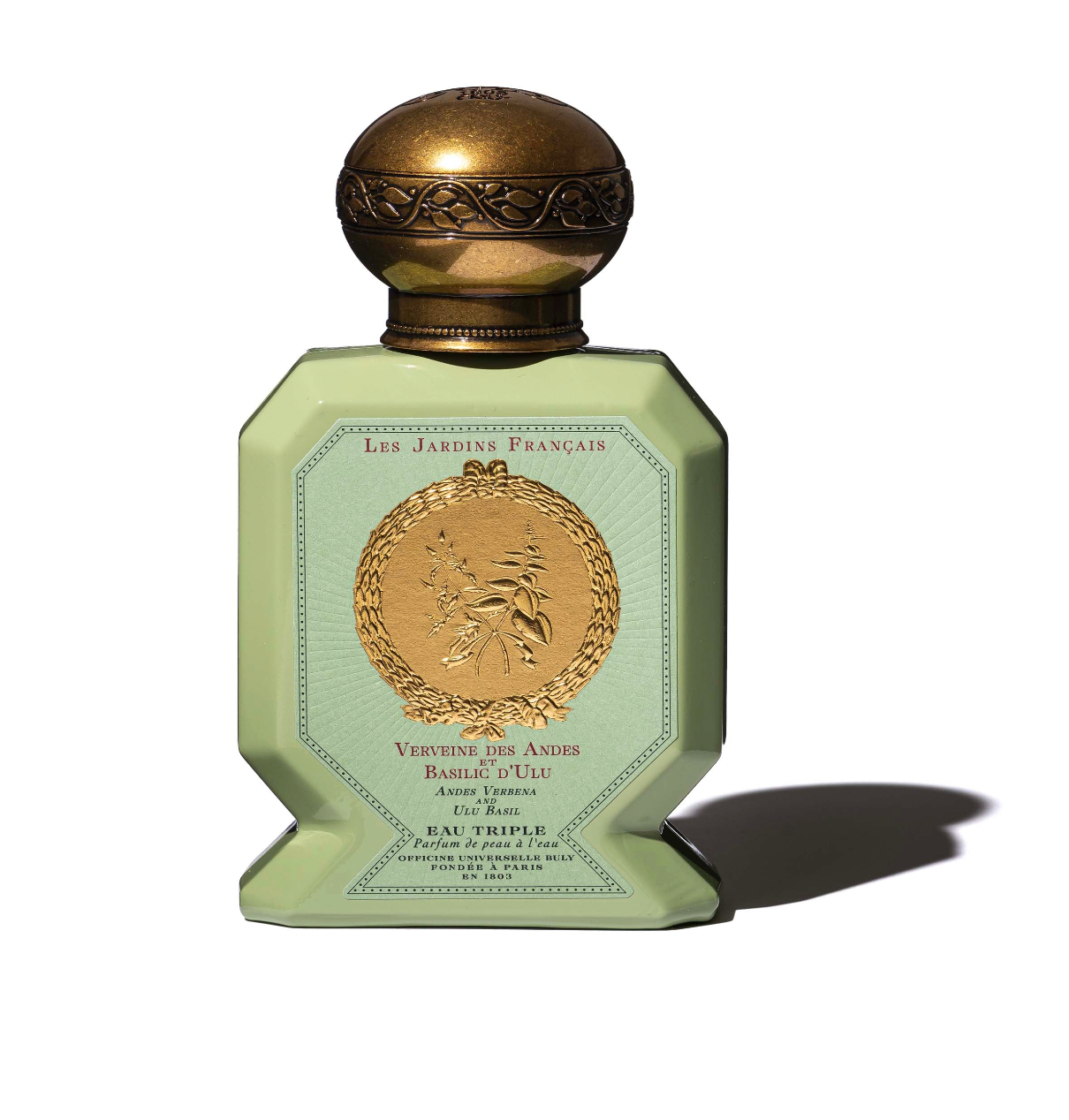
Beloved aromatic plants, Andean Verbena and Ulu Basil blend their green accords in a great fresh zest in this Eau Triple de l'Officine. First cultivated at high altitude in South America, lemon verbena has the extraordinary scent of lemon and citron, with a hint of floral and spicy notes. Discovered in the 18th century in Buenos Aires by Spanish and French botanists, this aromatic hesperidium later became one of the olfactory keys to Eau de Cologne. Basil, with its distinctive fresh fragrance, is considered sacred in India, where it first appeared, protective and royal in ancient Rome and ritualistic in Egypt. Now a familiar sight in our modern aromatic gardens, the planty scent of basil irrepressibly evokes summer, an absolute green illuminated by the sun.
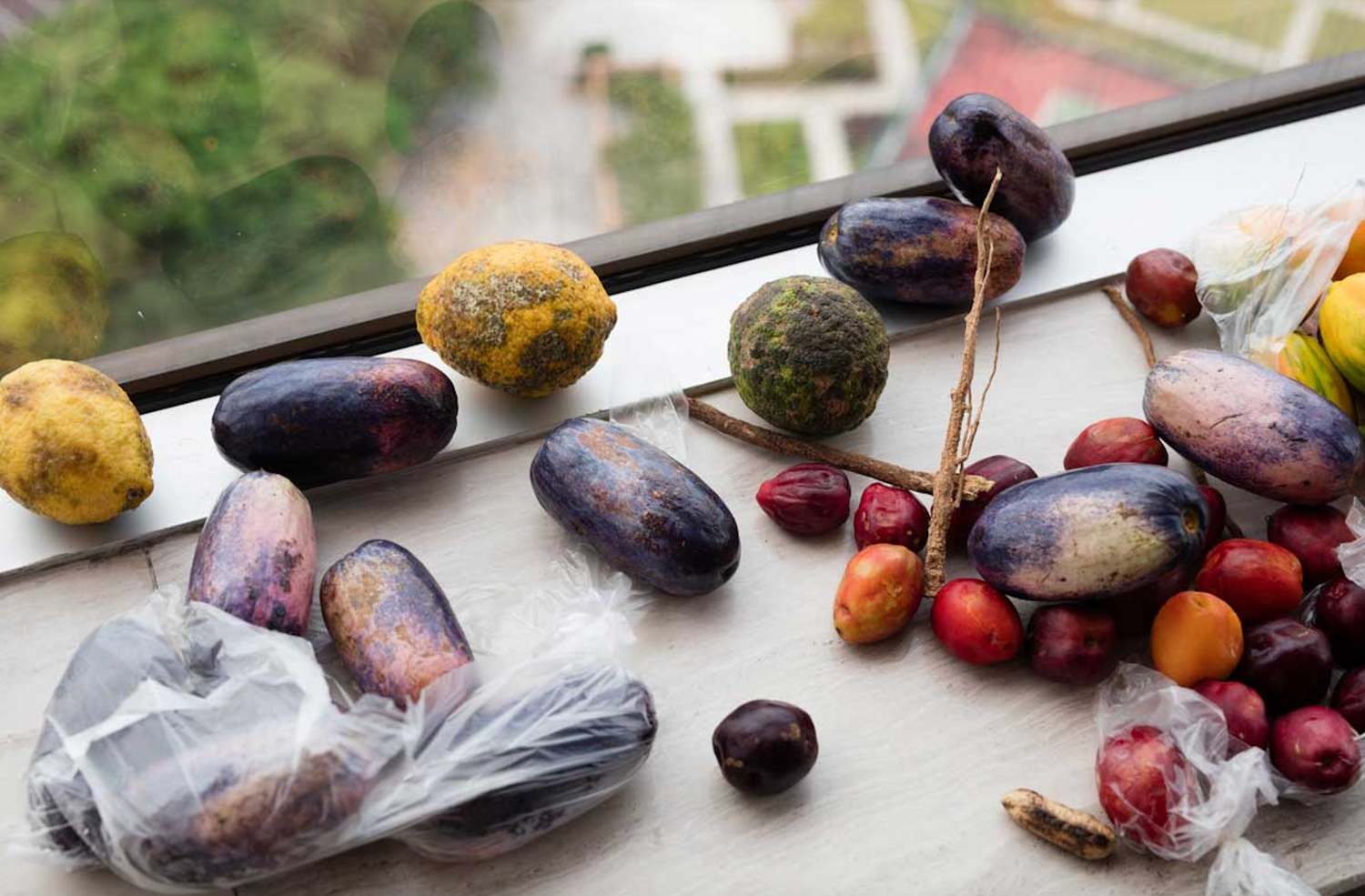
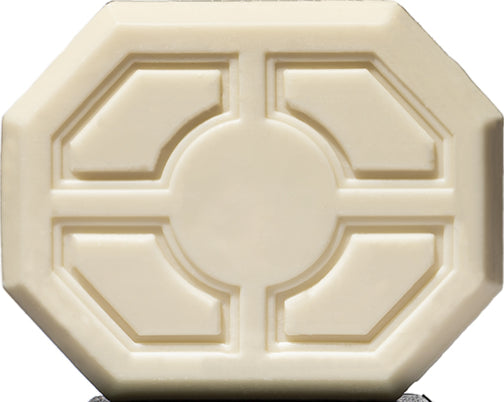
We will send you an email to reset your password
Your cart is currently empty
Upon request, your purchases are wrapped in a printed paper reproducing an old newspaper or slipped into an elegant, green-marbled gift pochette, as an homage to the creation and history of the Officine Universelle Buly.
The Exceptional origata gift wrapWHETHER FLORAL, STRIPED OR CHECKERED, AND ALWAYS HIGHLY CHROMATIC, THESE JAPANESE PAPERS ARE INSPIRED BY THE MOTIFS RESERVED FOR KIMONOS AND ARE FOLDED ACCORDING TO THE HIGHLY CODIFIED ART OF ORIGATA.
Monogram gift wrapThe initials of the fortunate recipient are embossed on the elegantly textured gift paper. Gilded in the old-fashioned style, the initials are then highlighted with a velvet ribbon.
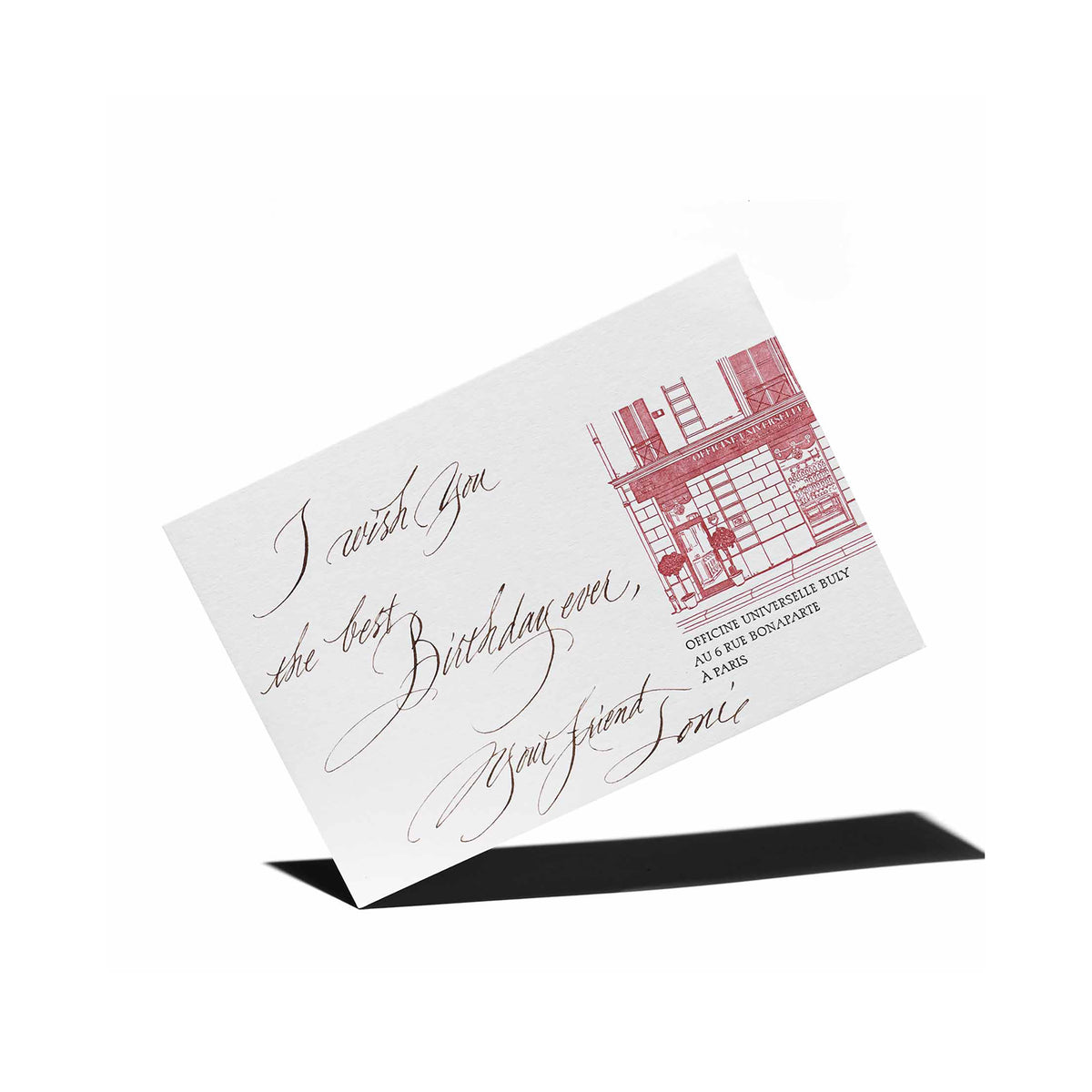
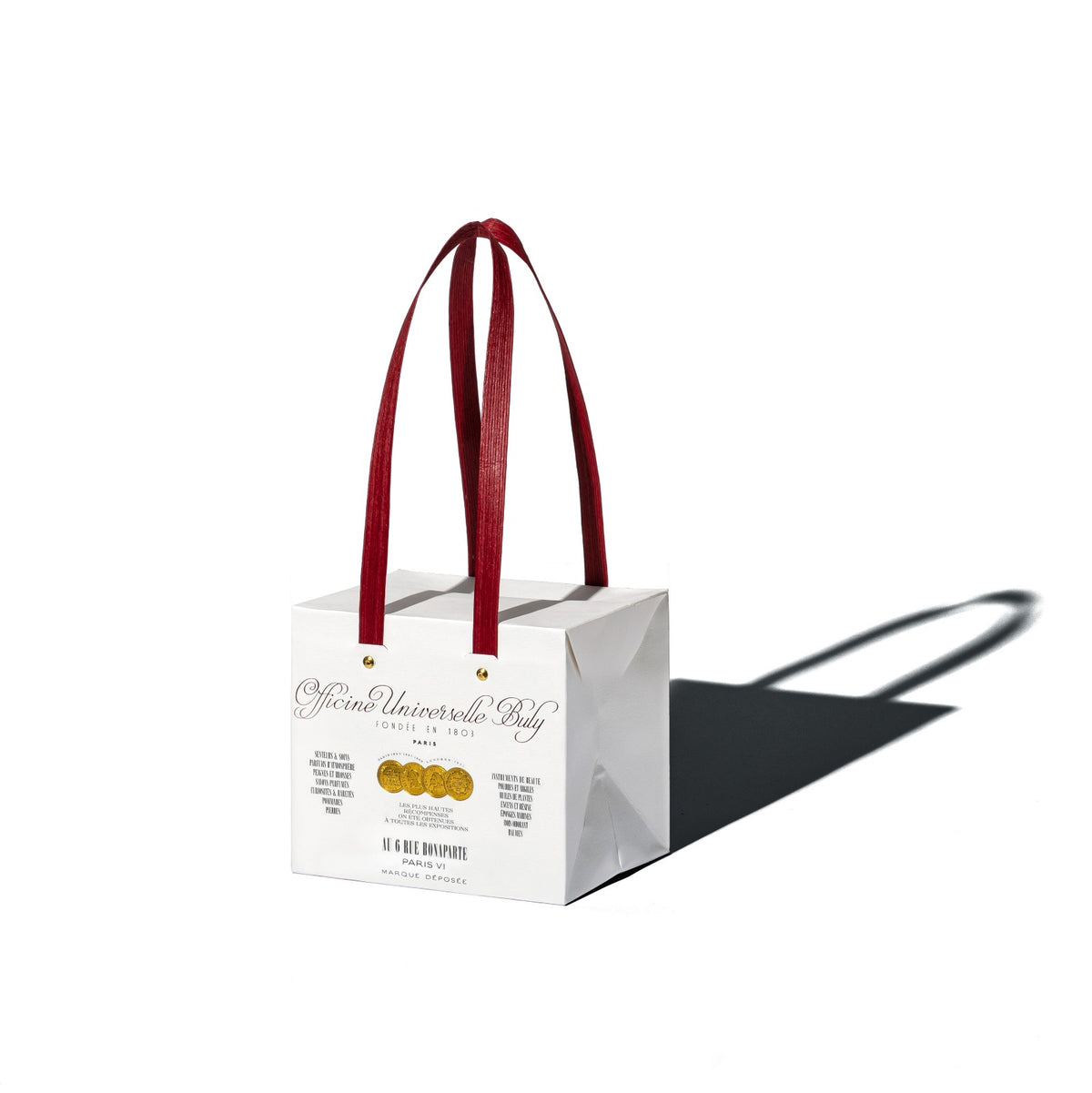
Choose the size of your bag
XS: Miniature case for small comb, soap or baume des muses ∙ 1,67 €
S: Travel companion for perfumed vials ∙ 1,67 €
M: Distinguished bag for scented candles and large books ∙ 1,67 €
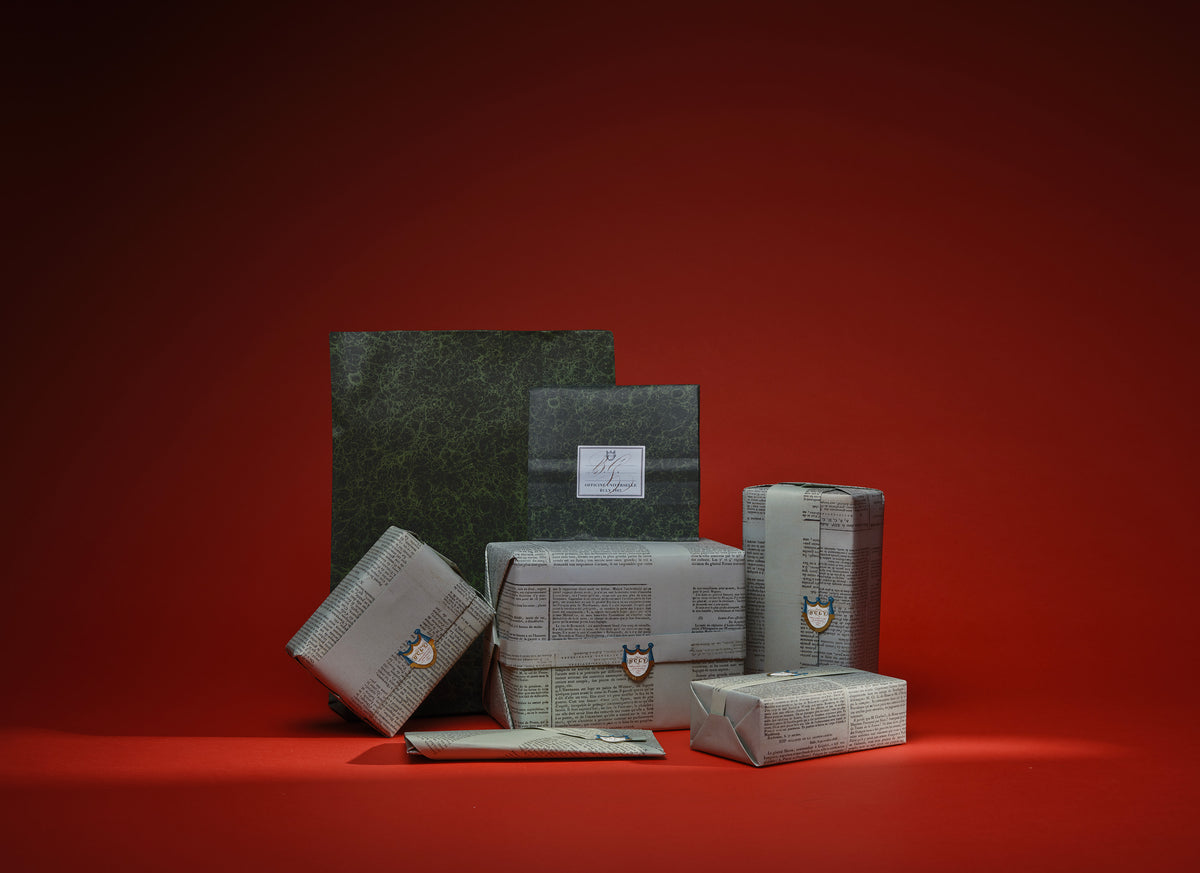
Select the products to be gift wrapped
These products are already gift-wrapped
None of the product in the cart are compatible with this service
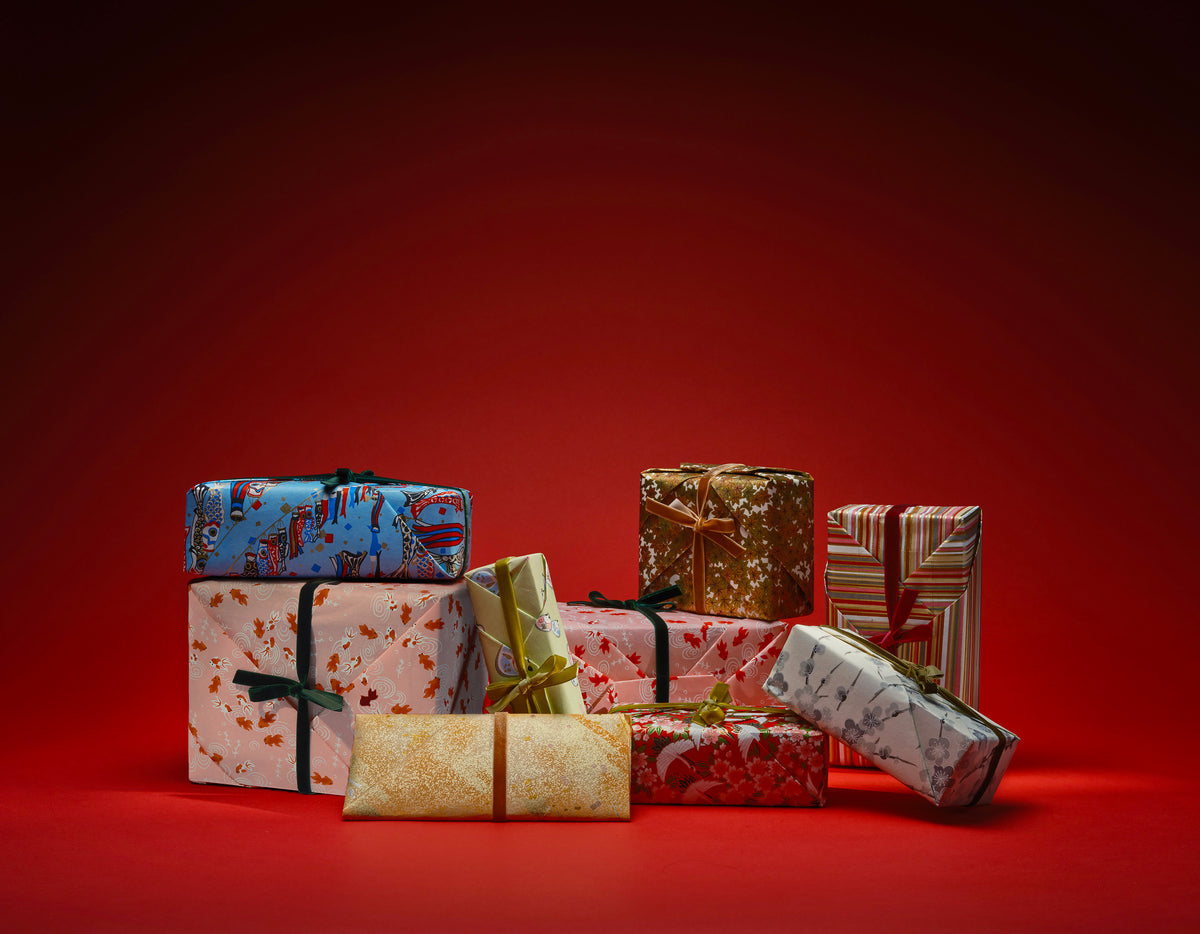
Select the products to be gift wrapped
These products are already gift-wrapped
None of the product in the cart are compatible with this service

Select the products to be gift wrapped
These products are already gift-wrapped
None of the product in the cart are compatible with this service
Every request will be respected as far as possible and the possibilities are great at Officine Universelle Buly.
Quantity :

Have your initials or those of the lucky recipient engraved in the heart of your Savon Superfin.
Have your accessory engraved with your initials, your name, or those of the person you’re gifting it to.
Have your initials or those of the lucky recipient of this gift engraved on the kit, the balm, the comb and on the toothbrush
Our bottles, candles and incenses are carefully packaged with handwritten calligraphy labels.
Our master calligrapher, armed with a quill and ancient ink pads, will create a wonderful bookplate on the title page.
We mail your calligraphic message directly to your recipient.
Please enter valid characters only
However, it seems that you are in Japan, would you like to switch to our Japanese website based in Tokyo?
Visit our StoreWe think you're in .
Update your delivery location?